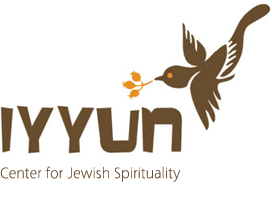The Talmud (Taanis 2a) refers to prayer as “service of the heart†(avodah shebalev). Prayer is an activity of the heart, with the heart and in the heart. When we truly pray, there is a deep movement inward and upward—to connect with the Ultimate Source of all reality.
And while there is disagreement between celebrated codifiers of Jewish law—Maimonides (also known as the Rambam) and Nachmanides (also known as the Ramban)—whether daily prayer (tefilah) is required of us, both agree that when we are praying, we are in a state of profound elevation, since we are reaching out and connecting with the Source of all life.
Kavanah/Intention
Intention (kavanah) is an integral part of prayer. It is the frame of mind, focus and concentration that we need when praying. The Hebrew word kavanah literally means “window†(as per the Book of Daniel 6:11), since with the right intention and focus we have the ability to open a window to our soul—our deepest self—and allow this internal, authentic self to be expressed and experienced.
The prerequisite is the negation of distractions, both external and internal, because only then can the process begin of filling the mind with the proper intention—that is, we first need to empty the vessel so we can later fill it.
Negating external distractions begins with ensuring that we are praying in an environment that is conducive for prayer. This simply means that that the place of prayer is physically clean, and that there are no overwhelming distractions. There should be a pleasant aroma, or at least no negative smells.
The Talmud (Megilah 29a) calls the synagogue a “miniature temple,†and it is the ideal place for prayer, being dedicated for this purpose; a synagogue will instinctively evoke the mood of prayer, certainly when ten men (minyan) are present. But, if for some reason we cannot pray in a synagogue, we should set aside in our home, or elsewhere, a special prayer place (makom kavua). This reserved space will become our sacred space, and the moment we enter it, we will feel charged for prayer.
Besides the proper environment, we need to ensure that our body is ready for prayer. Before we begin praying, we should make sure that there is no need to discharge any bodily fluids. And most importantly, our mind must be ready for prayer. We need to get rid of all extraneous, distracting thoughts and then create the proper context. Finally, whenever we are engaged in the service of the heart, we must first empty the heart from all distracting emotions. (Chovas Ha’Levavos Cheshbon H’Nefesh. 3. )
In the Code of Jewish Law (Shulchan Aruch), Rabbi Moshe Isserles (known as the Ramah) instructs that prior to prayer we should set aside time to ponder and mediate on “the awesomeness of the Creator and the humbleness of man.†This serves a dual purpose: it empties our minds of the deluge of egocentric thoughts, and it opens us to experience the awesomeness of the Creator. It also makes as profoundly aware in front of Whom we are praying.
Although throughout prayers God is generally referred to in the masculine, in actuality God does have a feminine presence in our world known as the Shechinah. But when we refer to God as transcendent of our world, we call God “The Holy One, blessed be He.†In our prayer we take on the role of the Shechinah in a state of lack, as it were, petitioning the Holy One, Blessed be He to be filled. The objective of our intention (as well as our good deeds and Torah study) is to inspire a unification between these two aspects into a perfect whole. This is the meaning of: “On that day, God will be One and His name will be One.â€
In addition to being aware to Whom we are praying, we need to be aware—and understand—what we are saying. Therefore, a good translation from Hebrew is a must. It is impossible to have the proper intention, if we don’t know the meaning of the words, which we should take care to pronounce audibly (at least to ourselves) and precisely, no matter which language we use.
Giving charity to the poor before prayer is another Talmudic suggestion (in Tractate Bava Basra 10a) for focusing intention. Â The act of giving to another in need allows us to go beyond our ego-based reality, expand our horizon and open ourselves to experience that everything is connected with Hashem.
Prayer as a gift
Prayer is the Creator’s gift to man. It gives us the opportunity to stand in front of the Creator of the universe and converse. Prayer offers us, who are finite, the amazing opportunity to communicate with the Infinite—to talk and express our feelings, needs and desires in front of the Creator.
Prayer is the Creator’s gift to man. It gives us the opportunity to stand in front of the Creator of the universe and converse. Prayer offers us, who are finite, the amazing opportunity to communicate with the Infinite—to talk and express our feelings, needs and desires in front of the Creator.
In Hebrew the word for prayer is tefilah—suggesting that prayer is an act of tofel, of “connecting and joining.†(Unkalut. Bereishis 30:8) When we pray, we reach out, go beyond ourselves, beyond the immediate, and connect with the Source of all life.
Prayer is the greatest gift of all, as it is allows us to lift ourselves out of the trivialities of our life, to abandon over-indulgence and materialistic gain and become spiritually elevated. A Chassidic parable explains this well:
Once there was a mighty king who announced that all his subjects could come and request whatever they wanted from him, and their wishes would be granted. Some people came and asked for gold, some for silver, and some asked to be promoted to high-ranking positions. One wise person asked to be granted the opportunity to speak to the king three times a day. Hearing his request, and realizing that the wise man felt conversation with the king was of greater value that any jewels or position, the king decreed that access should be granted. And, as a token, the wise person could pass through any chamber of the palace on his way to the throne room and take what he likes. (Toldot, Vaetchanan)
Prayer as transformation
The Hebrew word tefilah shares its root with yefalel, which means “judgment,†and with pallel, which means to “judge†(as used in Psalms 106:30). To pray (lehitpalel) is to judge oneself. Prayer is a time when we are alone with ourselves and in the presence of Hashem. This is a good time for introspection and self inspection—this is a good time to observe our inner self, examine where we are headed, what needs improvement, as well as what is positive in our lives.
Often, the best way to do this is to simply notice what grabs the mind as we are trying to concentrate on the prayers. If the mind continually wonders about, we can observe where it wonders. Â Of course, it would be better to let go of these thoughts, since they are intruding on our focus. But by noticing how they continue to creep in, we can discover what our concerns are and work to fix the trouble spots.
Standing in the midst of prayer, filled with an overwhelming awareness that we are in the presence of the Infinite Creator, we find our walls of self-delusion and deception come crumbling down. True honest communication occurs. We cannot fool ourselves longer. When we open ourselves to Hashem, our life becomes ever more transparent, and true work can be done toward self-improvement.
For this reason, prayer is also called avodah meaning literally “work†or “service.†The word avodah shares its root with ibud which means “working over/transforming.†It is through the act of praying that we can work ourselves over and transform for the better. We can open ourselves up to experience, and re-experience, our authentic selves.
Though this is serious internal work, demanding full honesty, it does not need to be a depressing chore. To the contrary, “joy brakes all boundaries.†(See Tractate Berachos 31a.) When we enter prayer with joy and confidence, we are demonstrating our intrinsic closeness with God, as we are openly communicating with, and cleaving to, our Source.
Prayer as unification
Beyond the paradigm of communication, prayer allows us to transcend relationship. Relationship implies inherent separation—two separate entities coming close, yet remaining on some level always apart. The high point of prayer is when we attain unification (deveikus), cleaving to Hashem until we become as one with Hashem. It is where our personal “I†becomes enclosed within the “Infinite I,†and there is a melding of the “two†into “one.â€
When we achieve the maximum potential in prayer, we transcend our limited self and dip into the limitless Infinite. Demonstrating this truth, at the height of the prayers (while reciting the Amidah/Shemonei Esrei), we stand erect, not moving, speaking in a whisper, as the ideas we are expressing represent the abandonment of self.
Prayer as transcendence
As the “separate self†ceases to exist, the “transcendent self†emerges. And so, at this peak level, our prayers are no longer focused on our selfish needs, but on the good of the entire community.
The Talmud (in Tractate Berachos 30b) says that “one may recite the prayers only in a state of heaviness of the head.†Literally, “heaviness of the head†means humility, but deeper interpretation suggests that “heaviness of the head†is an anthropomorphic term speaking of “The Headâ€â€”the Shechinah—or Divine Presence within creation. When we pray, we should be mindful of the pain and sorrow of the Shechinah Who now exists in a state of exile, entrapped, and concealed.
The Shechinah is in exile when we are in exile. (See Tractate Megilah 29a.) When we do not have what we need in order to maximize our spiritual potential, that is not only a deficiency in us, rather it is a lack of Godliness being expressed. Hashem’s Presence cannot be felt throughout the entire creation when we are unable to utilize everything towards a spiritual purpose.
And so, on this level of prayer, we are not asking for our selfish desires to be fulfilled. It is no longer our ego speaking; there is no longer a  separate autonomous self that is expressing its needs. Rather, it is the soul expressing a transcendent desire for revelation. Our deeper self is appealing to the Source of all life to grant us what we need so that Divinity should be manifest and actualized. At this point, our needs are nothing less that an extension of a Divine want and desire to be fully present and “dwell in the lower worlds.â€







